The lost purpose of education
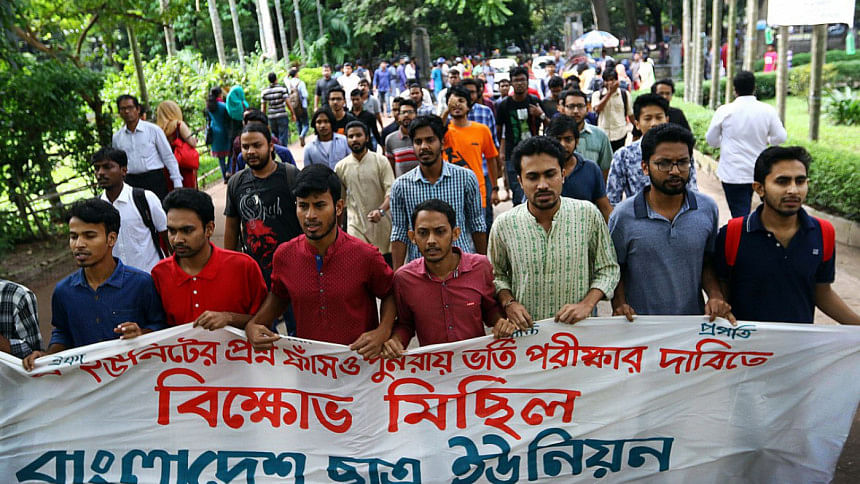
The University of Dhaka has long prided itself as the premier educational institution of our country. Since its establishment in 1921, it has come to be known as the oldest modern university in Bangladesh, making significant intellectual contributions to the country providing education to over 30,000 students. Every year, thousands of students sit for the admission examinations and only a lucky few make it through. This year 98,054 candidates applied for 1,610 seats for three groups, and 71,549 of them sat for the test last Friday. 10,264 of them have secured pass marks, which means 85 percent have failed.
On Sunday, the admission test results for Gha (D) unit of Dhaka University (DU) were published. Allegations of the question paper being leaked before the exams had started emerging a couple of days earlier. It has been claimed that the allegations so far have just been allegations, in spite of several newspapers, including The Daily Star and many television channels publishing the news with evidence. As many as 150 activists have been participating in a protest demanding the formation of a probe committee for a thorough investigation of the question leak allegation. In spite of this, the authorities have stayed stubborn on their stance of denial.
Reports have further emerged that a Dhaka University student deposited Tk 1.50 lakh into the bank account of a suspected member of a racket, allegedly involved in leaking question papers. The money was deposited around 15 days before the university's "Gha" unit admission test after a special team of CID arrested the two BCL leaders from their dormitories hours before the admission tests on Friday.
Admission seekers, former and present students, and members of the society from all walks and spheres were distressed first by the news, and then by the DU's continuous denial of the allegations. The case statements released also said that a drive was carried out on Thursday night on information that a racket was involved in leaking question papers of DU's "Gha" unit exam by the CID. The two BCL leaders mentioned above were arrested during the drive. There were whatsapp messages with images of question papers and admit cards of several admission seekers that were sent to other users.
The CID officials said that they have yet to draw a conclusion on investigating the matter and were trying to find out whether the racket and the reported "Gha" unit question paper leak were linked. However, such groups have been involved in leaking question papers of various public examinations like university admission tests and recruitment exams.
We might be tempted to get stuck on this particular act of immorality. But the fact of the matter is whether it is SSC exams, HSC exams, BCS exams or recruitment exams, the moral compass that guides the examination standards is seriously questionable. To begin with, if we accept the economic theory that demand creates supply then, why is there a demand for mechanisms that facilitate cheating? Why are we availing these services? Are we so de-capacitated or unconfident in our abilities that we cannot trust that we can succeed without compromising our integrity? And why are we so afraid of failing?
Also, we might want to ask ourselves what the purpose of these tests is. Between grade one and grade twelve, we take four exams. Do any of these tests really measure what we have learnt? And while we are at it, let us also question what the purpose of education is. Aristotle, arguably the founding father of education, would say the purpose of the state is to educate the people in order to make them virtuous. But that purpose of education in modern society has somehow been lost.
Tests, if they exist, should be designed in a way that makes it impossible to cheat, or not at all. That would mean no MCQs and significantly more effort on the invigilator's part. Questions should be designed in a way that makes it impossible not to engage in critical thinking.
But what measures have been taken to curb this problem? The education minister has come up with the proposition that examinees must enter the exam hall 30 minutes before the exam starts. With all due respect, that doesn't seem like a solution to me. I have strong faith in the creative ability of the youth and can guarantee that they will come up with a way to bypass this system as well. But this is the real question. How long are we going to keep breeding generations that are stunted in terms of intellectual growth and are solely pass/fail driven, not knowledge driven?
To be honest, I don't find it surprising that there is a demand for these services. Neither do I find it surprising that DU has gone on to deny all allegations. If they had taken a different stance on the matter, what would have changed? Corruption is rampant everywhere. Last month, Transparency International Bangladesh (TIB) released a report that blatantly stated that corruption, bribery, money laundering and human rights violations continue unabated in the country and poses a severe threat in achieving the Sustainable Development Goals.
So why should it be surprising that such allegations are emerging and that the DU authorities have gone on to deny them? I am afraid that we are suffering from cancer and treating a headache. This isn't a one-off incident. It's just a symptom of a wider problem prevailing in society. A moral decay.
Since Sunday, left-leaning student organisations have been protesting on the DU campus, demanding postponement of the admissions under the "Gha" unit, and cancellation of the exam and punishment for those involved with the question leak.
And as a nation weakens from its pillars being eaten away by termites of immorality and corruption, we recite, with rigour.
"Shokale uthiya ami mone mone boli
(I wake up in the morning and say to myself)
Sharadin ami jeno bhalo hoye choli
(I hope I am able to stay on the good path all through the day)
Adesh koren jaha more gurujone
(Whatever is commanded by the learned and elderly)
Ami jeno shei kaj kori bhalo mone
(I hope I am able to do, with conviction)"
Sheer rigour and no understanding of the essence. Much like everything else we learn.
Shagufe Hossain is the founder of Leaping Boundaries and a member of the editorial team at The Daily Star.



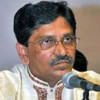
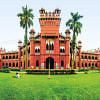
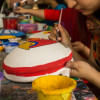
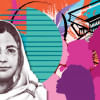
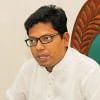


Comments